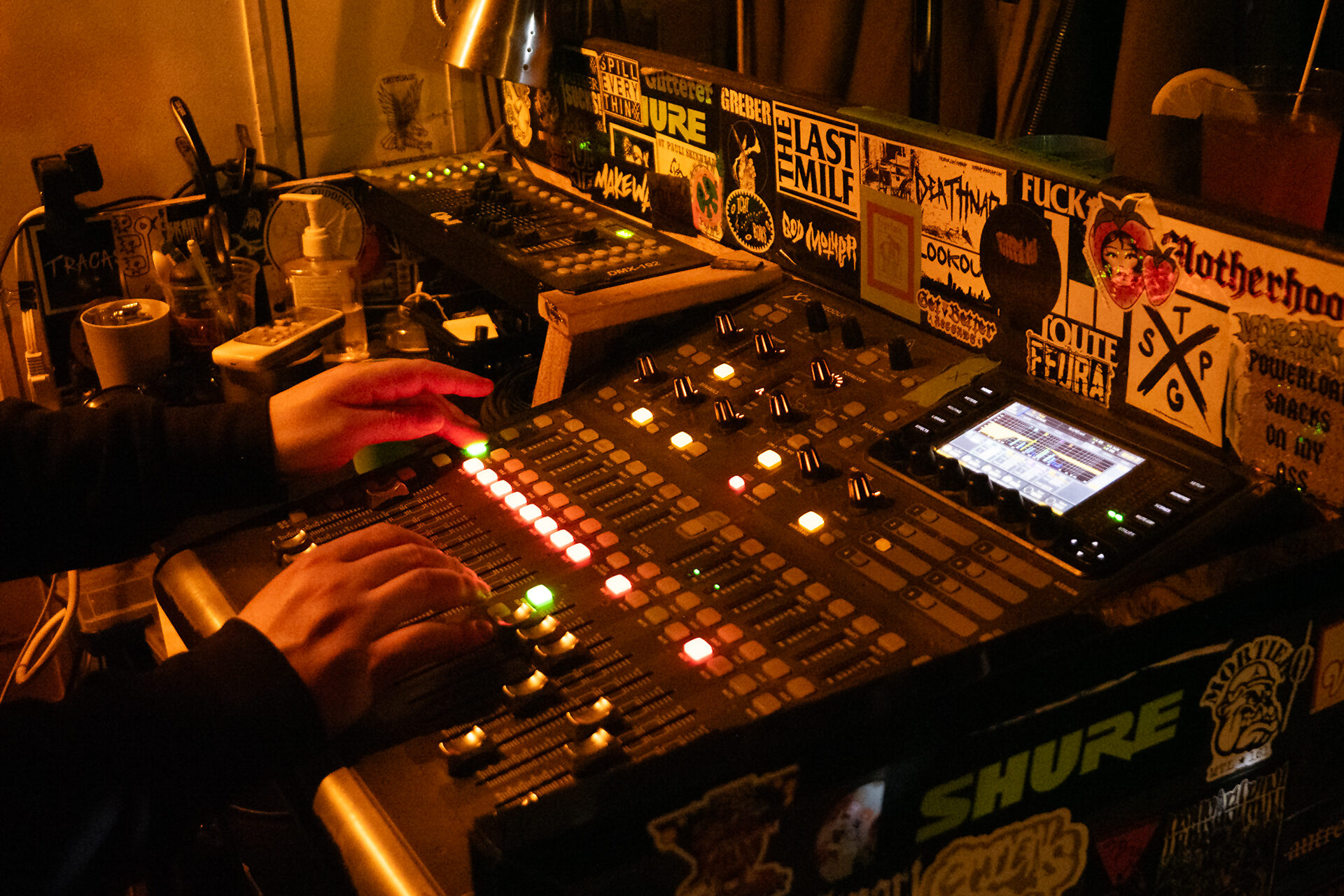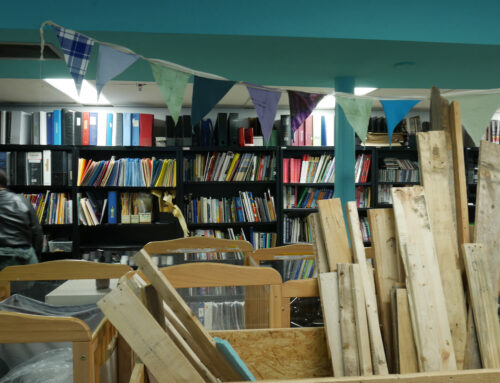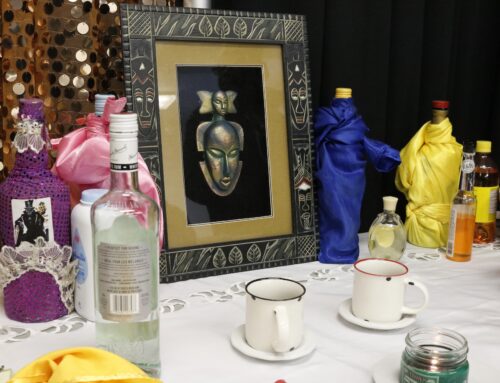BY Jasper Bleho-Levacher & David Joussemet-Beaudoin
“I’ve never seen it this bad,” Sergio Da Silva says emphatically.
He’s talking about noise complaints targeting music venues and bars in Montreal. Da Silva’s sitting at Le Café Big Trouble, which he owns along with renowned cocktail bar Turbo Haüs.
On the bar’s 20,000 followers-strong Instagram page, Da Silva is known for being vocal about a range of issues, from Quebec secularism controversies to the housing crisis. A recurring topic is also the state of music venues in the city.
Over the past decade, many famous venues in Montreal have shuttered. Bobards in 2015, Inspecteur Épingle the following year, Divan Orange the year after that… The reasons for these closures are often multiple, but noise complaints are typically largely to blame, something Da Silva finds frustrating.
Noise complaints have forced several venues to shut down over the past decade. Infographic by Jasper Bleho-Levacher.
“If you’re living here [on Saint-Denis] or on Saint-Laurent, where nightlife traditionally happens, you can’t, in good conscience, send in these complaints,” he says.
Turbo Haüs itself has dealt with the issue. The bar was fined $12,000 back in late 2023. The complaint was eventually dropped, but Da Silva warns that this will continue to be a recurring issue for bars and venues in the future.
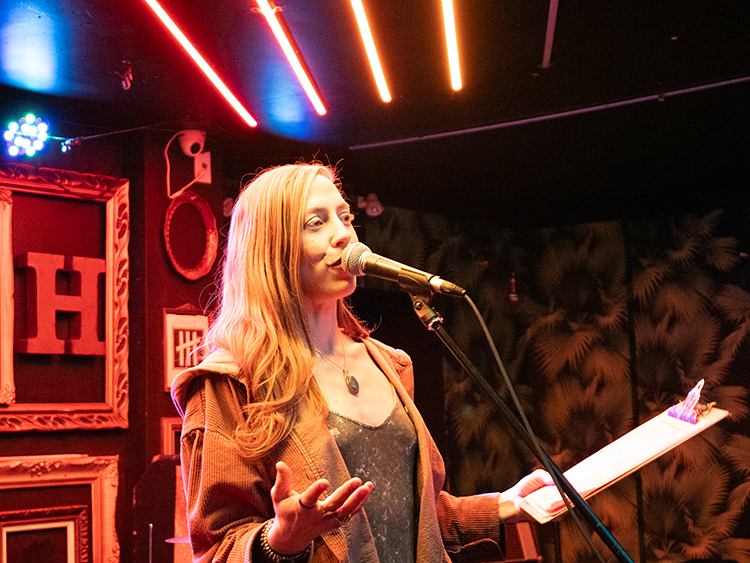
Singer-songwriter Lea Keeley hosts an open-mic night every Tuesday at Turbo Haüs, a venue which has had to deal with noise complaints. Photo by Jasper Bleho-Levacher.
Champs, a popular LGBTQIA+-friendly sports bar in the Plateau-Mont-Royal borough is one of the more recent examples of this. The bar was forced to close its doors for a period of five days in early March 2025 after a neighbour reported Champs to Quebec’s Liquor, Racing and Gaming Board for being too loud.
Noise complaints also closed La Tulipe in 2024. It came after several years of receiving repeated complaints from one neighbour.
For Julien Deschênes, political attaché to Plateau mayor Luc Rabouin, this is a major loss.
“Venues, and artists, are the very identity of this borough,” he says.
Montreal’s festivals are a defining feature of the city. How have they become such a success? Video by David Joussemet-Beaudoin.
In the aftermath of La Tulipe’s closure, Rabouin’s administration rushed to remove a rule from the borough by-laws which stipulated that bars, restaurants and music venues could be fined if noise could be heard from outside the building. In practice, this rule was implemented according to an individual police officer’s discretion.
The quick change in legislation was prompted by fears the court’s ruling in the case of La Tulipe could lead to a wave of closures in the Plateau. Rabouin had promised even more reforms with the goal of addressing the issue of noise complaints more comprehensively.
By mid-March 2025 though, no new legislation had been proposed. Deschênes argues that this is because the issue is complex.
“Every building has a different context,” he states. “Venues have different levels of soundproofing, different types of activities. A comedy venue will not have the same noise level as a venue with concerts, for example.”
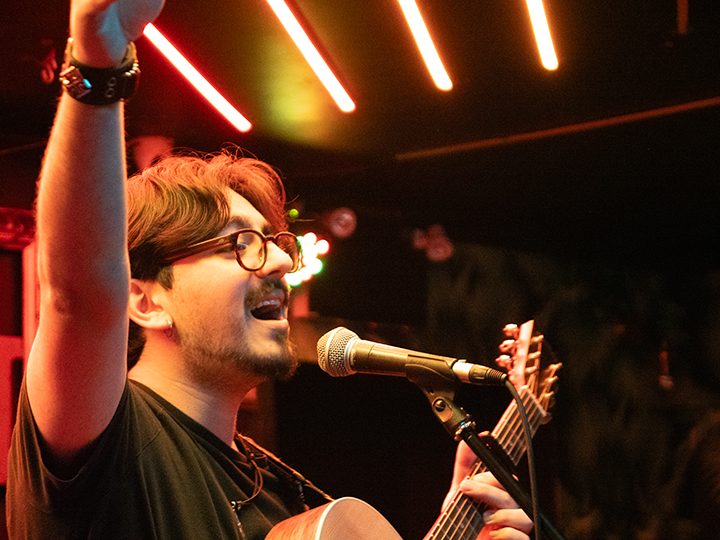
Jimmy Khaled performs at a Tuesday night open-mic show at Turbo Haüs. Photo by Jasper Bleho-Levacher.
The city is currently experimenting with a pilot project in three bars in the Plateau and Ville-Marie boroughs which will inform the new legislation.
“We’re still smoothing out the details, because it’s difficult to come to a final decision,” Deschênes explains.
But for Julien Hénault-Ratelle, spokesperson in matters of economic development for municipal opposition party Ensemble Montréal, Rabouin’s administration is taking too long.
“There’s no justification for it to take more time than it already has,” he asserts. “It’s a very bad argument. We’ve been consulting experts for years.”
Hénault-Ratelle is sharply critical of Rabouin’s team, which he believes dropped the ball when it came to La Tulipe.
“In the case of La Tulipe, we can easily find articles online from 2020, 2021, where you can see that cohabitation issues involving La Tulipe were already a problem,” he says. “The administration was aware, and they didn’t do anything about it for four years.”
The opposition politician argues that acceptable noise levels are not clearly defined at the moment and that this needs to change quickly.
“All boroughs with independent venues […] need to amend their noise regulations to make sure we don’t see a fifteenth, sixteenth, seventeenth mythical Montreal venue shut down,” he says.
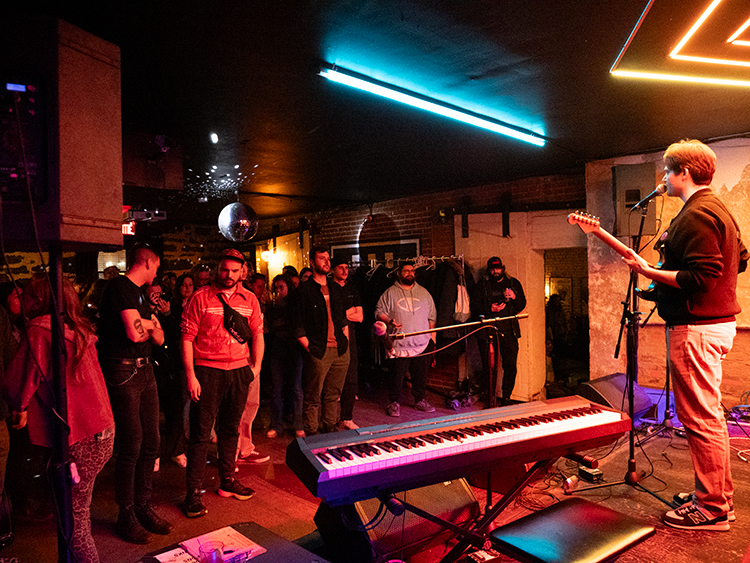
A crowd has come to Turbo Haüs’ Tuesday open-mic night. Taylor Price, AKA Kick Bucket, is performing. Photo by Jasper Bleho-Levacher.
Austin Wrinch, co-founder of the Diving Bell Social Club, a now-closed popular performance venue, agrees that current legislation lacks clarity.
“Currently, the cops show up responding to a noise complaint and they make the assessment in the moment of whether it warrants a ticket or not […],” he explains. “It’s completely arbitrary. Yet the fines and the consequences are very real.”
During its short lifespan, the Diving Bell had managed to become a mainstay of the local music scene in Montreal. At the end of 2023, Wrinch and his business partners chose to vacate the premises, however. There were many reasons motivating their decision. Crucially, their landlord had been considering selling the building, creating concerns of increased rent. Located on the third floor, the space was also not very accessible, something Wrinch disliked. But repeated noise complaints were, according to Wrinch “the final nail in the coffin.”
“The inconsistency and randomness of these noise complaints really put our future in jeopardy,” he explains.
Meyer Billurcu, co-owner of Bar “Le Ritz” PDB, an underground music venue in Park Extension, understands the anxiety this randomness can produce.
“We’re seeing what happened to La Tulipe and other places, so we’re always sort of on edge,” he says.
At one point, several years ago, the Ritz had nine noise complaints against it at the same time. Billurcu explains the fines added up quickly.
“The first one is like nothing,” he says. “They give you a ticket and it’s like 30 or 40 dollars. But as you get more and more tickets, the fines suddenly become 900 dollars!”
The Ritz did not have any issues with neighbours at first. Things changed when the neighbourhood was rezoned as residential.
This is a common story. La Tulipe, for example, started receiving complaints from its neighbour in 2017, after the latter got the Plateau mayor’s office to approve converting the building he owned to a residential one the year prior. The borough maintains that this was a mistake, however, as it is contrary to Plateau by-laws. This is why it brought the issue to court back in 2022.
“Even if we accidentally gave a permit, it doesn’t change the fact that the use of the building (as a residence) is illegal,” Deschênes argues. “So, we’re trying to demonstrate that in court, but it takes time.”
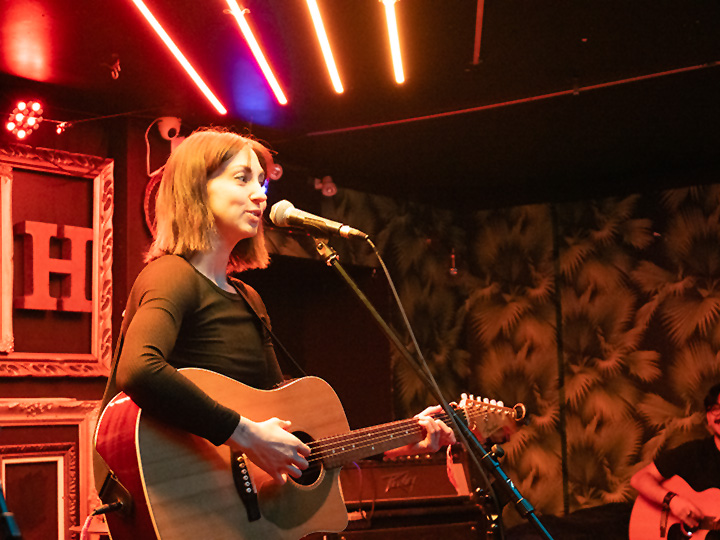
Sara Sue Vallée performs at a Tuesday night open-mic show at Turbo Haüs. Photo by Jasper Bleho-Levacher.
Because of stories like this one, MTL 24/24, an organization which promotes Montreal’s nightlife, has proposed the principle of the “change agent.” The term refers to an individual or entity who changes in some way a given neighbourhood, for example by moving in. According to the non-profit, the change agent should be the one required to adapt to their new surroundings.
In practice, this would mean that a situation like that of La Tulipe would be less likely to happen, because the venue’s neighbour would have been responsible for insulating his building from outside noise. This principle is highly needed, according to Hénault-Ratelle.
“It’s really just common sense and everyone can understand it,” he argues.
Wrinch, Billurcu and Da Silva all agree. And something else they agree on is the role of music venues in building community.
“People keep saying that we’re losing third spaces,” Da Silva remarks. “[Venues and bars] are those third spaces.”
In addition to the Ritz, Billurcu also owns Blue Skies Turn Black, a Montreal-based concert promoter. He says he has seen firsthand the importance of venues in keeping the Montreal music scene alive. Notably, he points out that many future bandmates first meet at shows.
“These are meeting spots,” he explains. “Today’s spectator is tomorrow’s musician on stage.”
